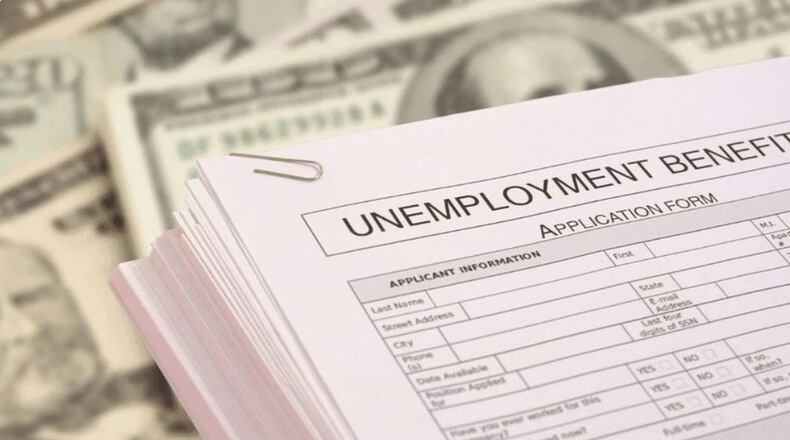Six jobless Georgians are asking that a judge order the state Department of Labor to speed up unemployment benefits to them and others who have been waiting to be paid for months.
Lawyers handling the suit say the half dozen are among thousands whose applications and payments have been delayed — sometimes since last spring.
That inefficiency violates the DOL’s legal obligations, said Miriam Gutman, attorney for the Legal Aid Society, which joined with Georgia Legal Services and the Southern Poverty Law Center to file the suit in Fulton Superior Court. “We have never seen the sorts of delays that we are seeing now.”
The Georgia Labor Department has not received formal notice of the suit, said spokeswoman Kersha Cartwright. “We are going to decline comment until we see something officially.”
Since the start of pandemic-triggered layoffs last spring, the DOL has come under fire for being slow to handle claims. In the early months of the pandemic, DOL officials admitted that they were far behind, but by fall, Labor Commissioner Mark Butler said the department had caught up.
The reality is otherwise, Gutman said. “It has gotten worse.”
Among the plaintiffs is Sulatha Blount, 61, of Macon, a self-employed house cleaner who said she qualified for the federal pandemic benefits as a gig worker. Her application in March was approved, but payments didn’t come through.
“I’ve gone to church members for help,” she said in an interview with The Atlanta Journal-Constitution. “I’ve gone to my elderly father. I’ve been kicked out of my medical clinic for not having enough money.”
Only the government’s moratorium on evictions kept her off the street, she said. “I have always been a faithful worker. It doesn’t have to be like this.”
Many claimants have complained from the beginning that it was nearly impossible to contact DOL staff with questions or concerns.
Harriett Rogers, 60, of Mableton, another plaintiff, lost her job as a patient account representative and received benefits until they ran out in August. She was told she could file a new claim, but could not get a hearing on the application until March — and couldn’t talk to a staffer about her situation.
“I was sitting in my apartment on the brink of being evicted, trying to get information on food pantries,” she said in an interview. “There was just no one you could get to.”
Jobless benefits in normal times are meant to provide only a temporary cushion. But even after the economy started recovering, Georgia jobseekers dramatically outnumbered openings.
As the pandemic relief programs expired, Congress last month passed a new set of benefits until a vaccine’s distribution could power a full rebound.
But people who do not get the benefits, do not have the cushion.
After losing her job in the spring, accountant Lisa English, another plaintiff, said she couldn’t afford her rent, so she moved into a smaller apartment in Rockdale where she could share expenses.
She was called back to work briefly in the fall, then let go again.
“I haven’t seen a dime from either claim,” she said in an interview. “It’s hard at 36 years old to be relying on your boyfriend and your parents to pay your bills.”
Although the pandemic created unprecedented problems — and widespread complaints about the DOL — the legal odds are long against this kind of effort, said Atlanta attorney Page Pate, a senior trial lawyer with Pate, Johnson & Church and a frequent legal commentator, who is not connected to the suit.
“Superior Court judges are almost always reluctant to tell a state agency how to do its job,” he said. “It is extraordinarily unusual.”
Even if plaintiffs can prove an agency isn’t efficient, that’s usually not enough to spur a judge to intervene, Pate said. “I think this complaint was filed because there isn’t anything else the plaintiffs can do, other than get some public attention on this issue.”
About the Author
Keep Reading
The Latest
Featured


